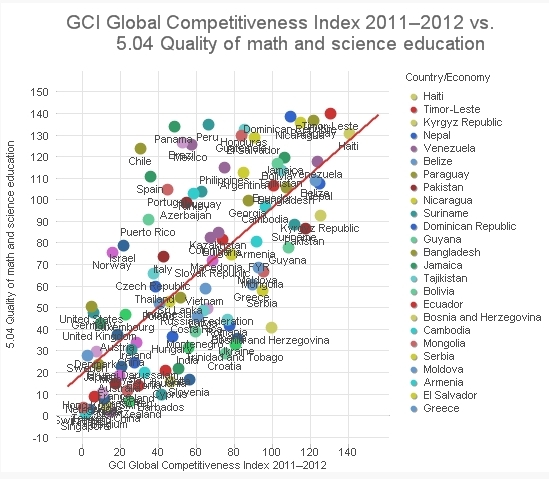
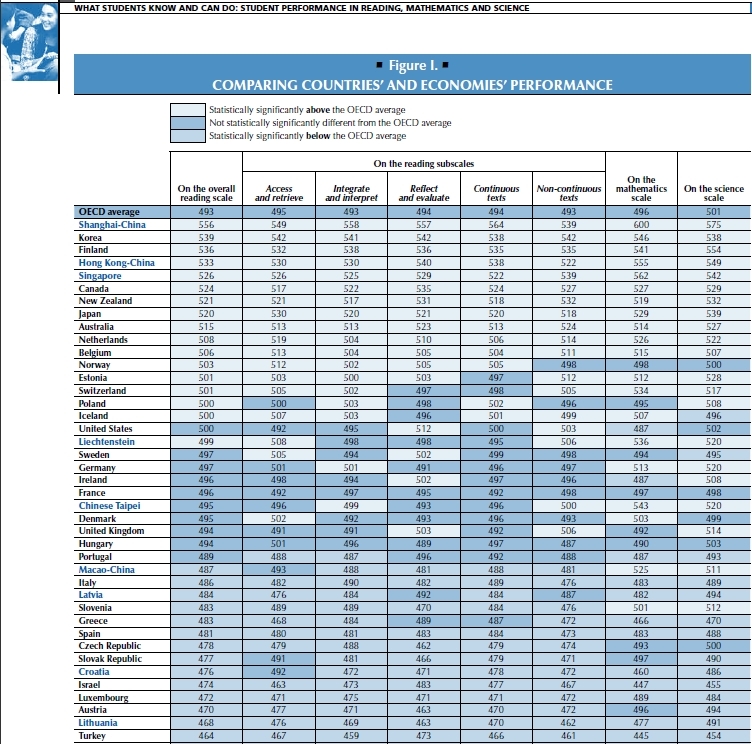
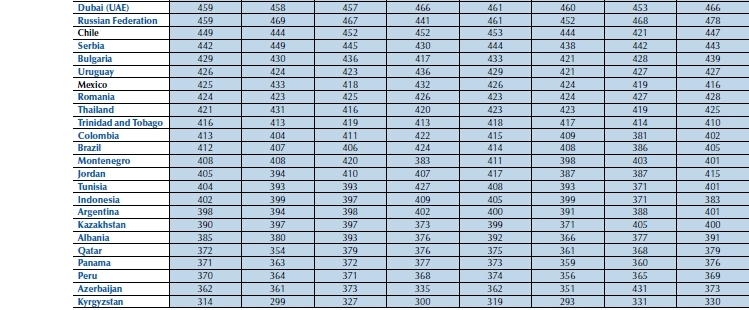
In general, students, parents, and teachers believe that the U.S. offers its students a superior education, including in science and mathematics. However, international comparisons demonstrate conclusively that this is simply not true. Every comparative study of international education programs and student achievement concludes that US science and math programs and student achievement are, at best, average among its global competitors.
The National Academies' "Gathering Storm" Committee, so named because of the title of its first report, recently released a new report, Rising Above the Gathering Storm, Revisited: Rapidly Approaching Category 5, in which it painted a grim picture of continuing deterioration of US education relative to other countries. From the summary of that report: "[this] report paints a daunting outlook for America if it were to continue on the perilous path it has been following in recent decades with regard to sustained competitiveness... in spite of sometimes heroic efforts and occasional very bright spots, our overall public school system — or more accurately 14,000 systems — has shown little sign of improvement, particularly in mathematics and science. Finally, many other nations have been markedly progressing, thereby affecting America's relative ability to compete effectively for new factories, research laboratories, administrative center — and jobs... The Gathering Storm Commmittee's overall conclusion is that in spite of the efforts of both those in government and the private sector, the outlook for America to compete for quality jobs has further deteriorated over the past five years."
| The World Economic Forum ranks the quality of math and science education in the US 52 out of 139 countries. The chart shows countries from the Americas, Europe, and Asia. The US is near the left of the chart at the "50" level on the y-axis (that's the ranking, so lower numbers are better than higher numbers), much worse than many of the European and Asian countries which constitute our global competition for the 21st century! |
 |
| The OECD Programme for International Student Assessment (PISA) 2009 scores in reading, mathematics, and science show the US to be about average among developed and developing countries. |
 |  |
| The National Center for Education Statistics Trends in International
Mathematics and Science Study (TIMSS) reports show the US about average among developed and developing countries.
Average mathematics scores for 4th and 8th grade students, 2007 |
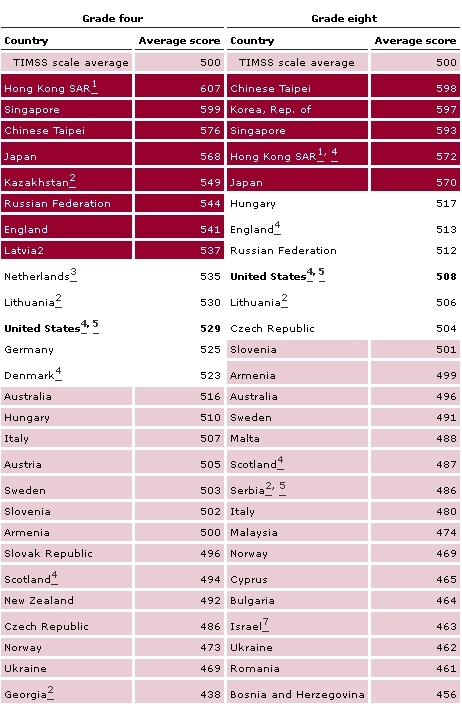 | 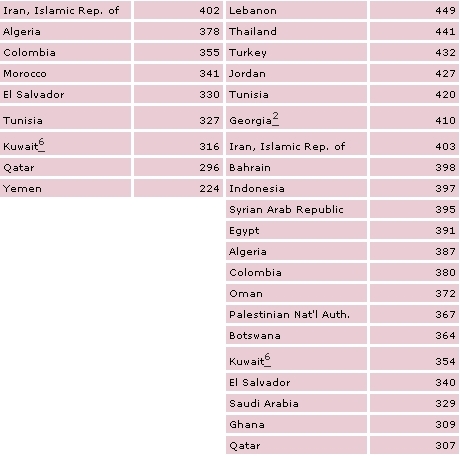 |
| (TIMSS) Average science scores for 4th and 8th grade students, 2007 |
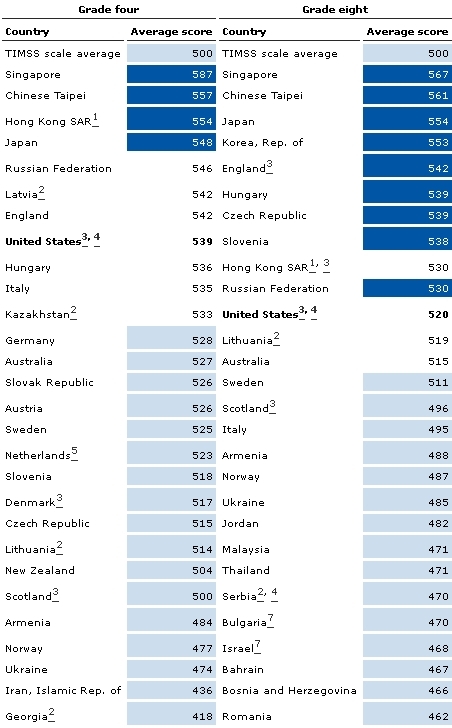 | 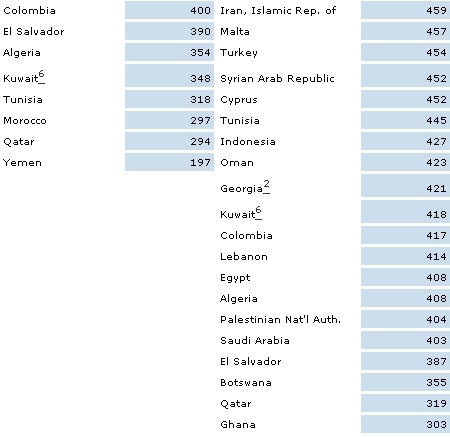 |